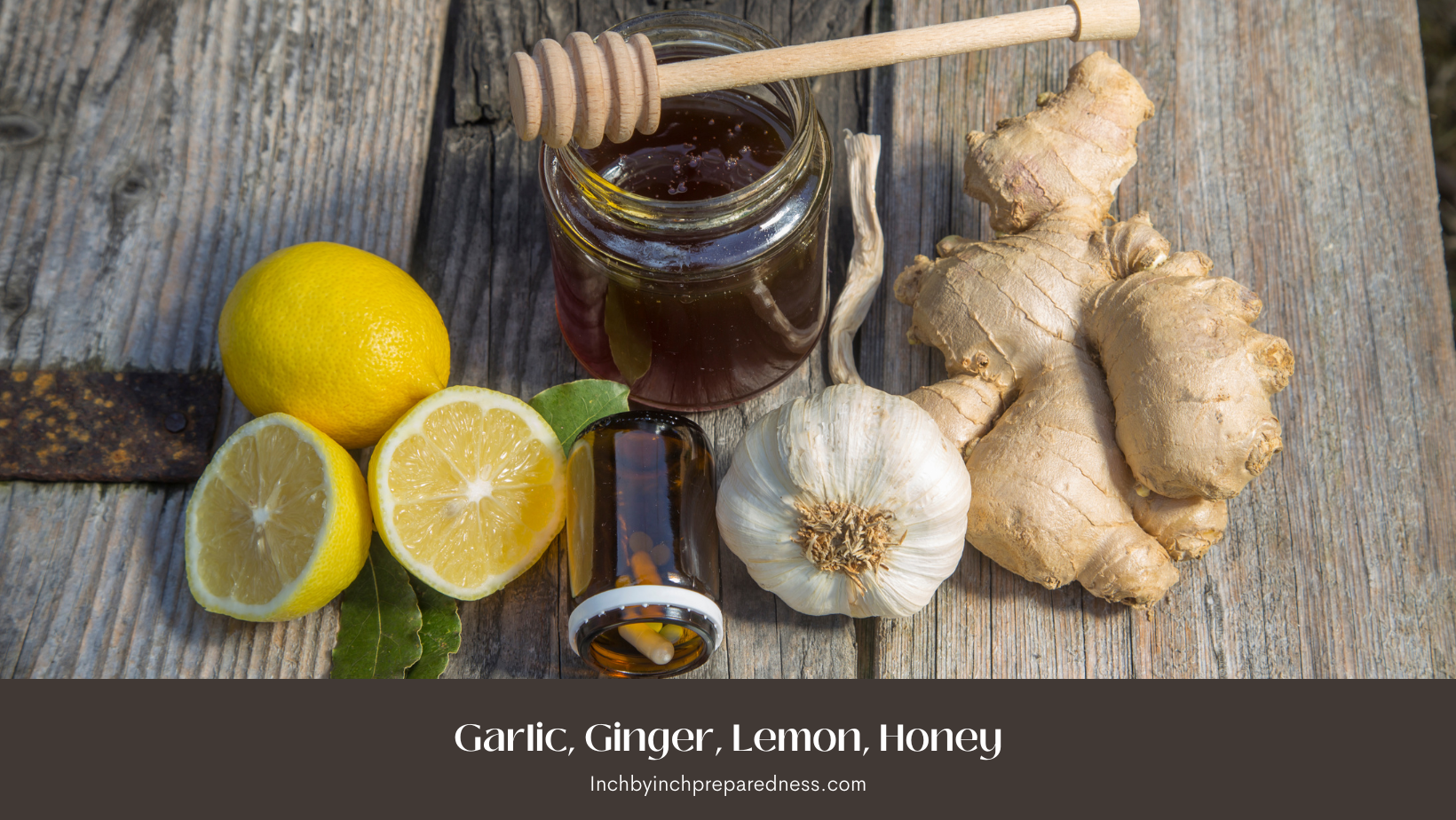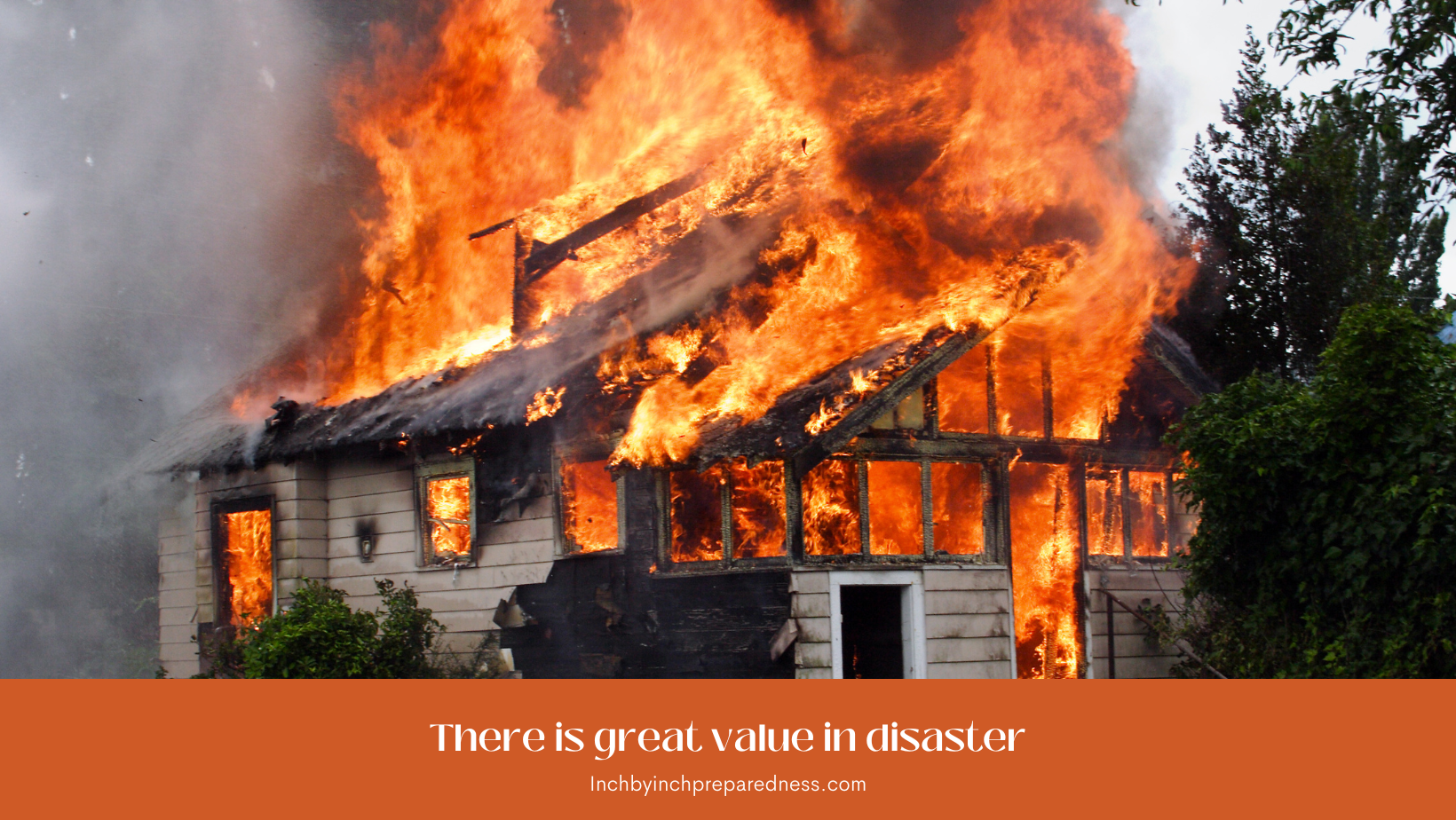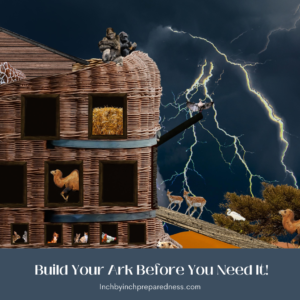When you are prepared, which includes practicing for emergencies, your family will be more able to make the appropriate actions and experience less stress when a disaster actually happens. Do your best to help all of your family members learn about the different types of emergencies and how to respond instead of just react to them.
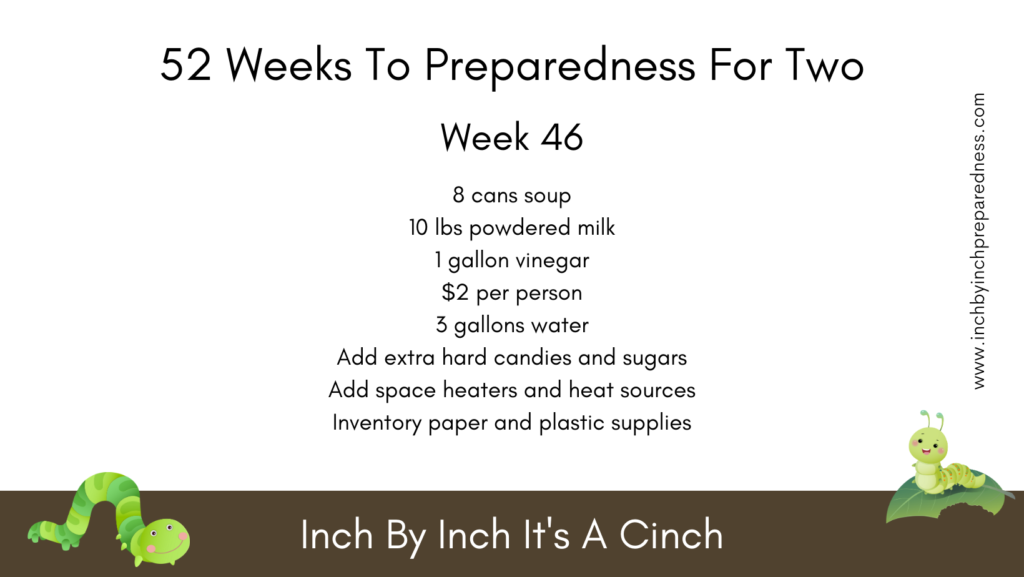
Skills you can learn prior to a disaster
Cooking from Scratch – learn to create your own meals, and stop going out for food so much. The time is long past for us to have this valuable skill. Start cooking and baking with simple things. Read the recipe all the way through. Gather your ingredients. Keep trying new things.
Canning and Preserving Foods – this is a vital skill, to preserve your own garden and foods, to preserve foods you find for great bargains. Stock your pantry with foods your family will enjoy. Do a little study and purchase the proper equipment, and get busy. Ask a friend for help if you don’t understand. It is a simple process, and just takes time to learn.
Dehydrating – another way to preserve your foods. You don’t even need any special equipment because it can all be done right in your own oven. It can also be done in the sun, or using a commercial dehydrator, which you can find pretty much anywhere for relatively inexpensive.
Herbal Remedies – I love herbals, and you can find me blogging about them here at Bitter Sweet Herbals. Pharmaceuticals will not always be available, as we have seen off and on so much for this past couple of years. It is always smart to have a back up plan, and that is with herbals. You can study at my other blog, or find some good books and start your own studies. I have several of my own books on Amazon that might be a good starting place. Our ancestors lived off the land – before my time, but even my own grandparents knew how to use some of the more familiar herbs that grew locally. We can do it too if we take the time to learn these amazing herbal remedies.
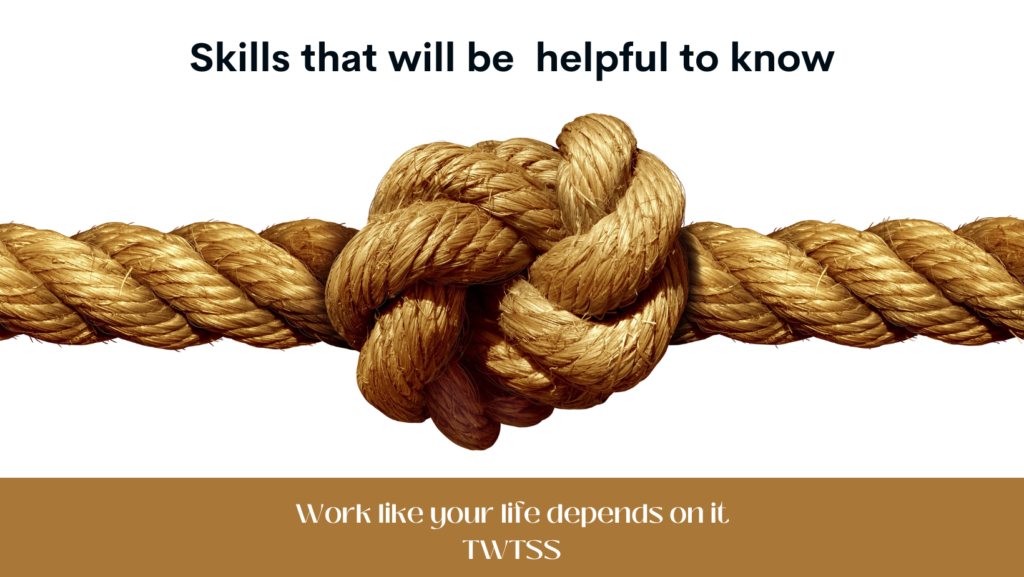
Knots – I must admit I don’t know my knots very well. I will make an effort to learn them more and what they are used for. My husband has always been the knot guy. He can take some wood and whatnot, with rope and create quite the campsite that is amazing. He knows what kinds of knots are best used for various things. Paracord is a light and easy rope to carry. Learn how to use it for everything.
Shelter – Would you be able to set up a shelter with a tarp and some ropes? I know we can! I actually find it exciting to take on these kinds of challenges. Shelter is the number 2 thing that will kill you if you don’t have it in extreme weather. Water being #1. Learn how to build simple shelters in different environments. For example shelters like: a snow cave, lean-to, raised platform, double layer tarp shelter. Do some study and see which creative ways you can come up with.
Foraging – You may need at some point to rely heavily on the skill of foraging to survive. This is very different than looting, so don’t confuse the two. Find resources left, be resourceful. You may need to forage for food, water, wood, shelter items, medicinal herbs and such.
Learn these skills and be prepared to be resourceful in a disaster situation. Wouldn’t you rather be a help than a hindrance. I know I would!
Happy and Healthy Prepping
Davilyn
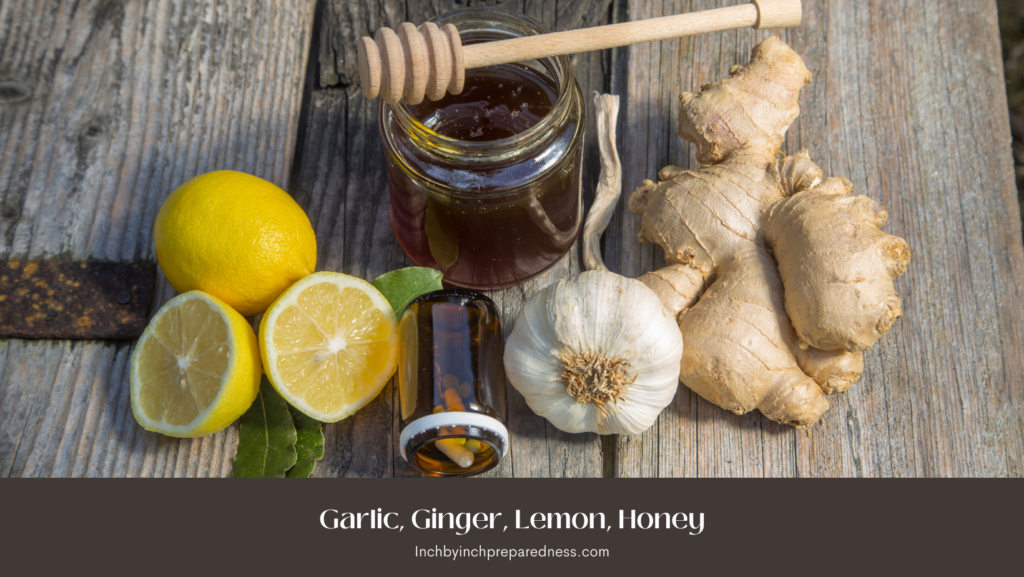
Family Activities to do:
Discuss the type of hazards that could affect your family (fire, severe weather, tornado, earthquake, flooding, etc) Locate a safe room or the safest areas in your home or yard for each type of possible hazard. Practice having an emergency, such as an earthquake. Teach your children where to go and what to do.
Have each child draw a floor plan of your home and determine 2 escape routes from each room in your home and a place to meet outside your home. Practice getting out of the house in different types of emergencies.
Make a list of emergency numbers and post them where they can easily be found. Teach children how and when to use them. Have children memorize important phone numbers. Parent cell phones at minimum.
Write the words fire, earthquake, tornado etc on separate pieces of paper. Choose the disasters that are appropriate for your area. Fold up the papers and place in a small container. Have each member of the family draw one of the papers out of the container. The first child to identify what immediate action needs to occur wins a small prize or a point.
Have an emergency preparedness scavenger hunt. Make a list of needed items for your 72 hour kits. Divide your family into teams and provide each team with a basket or box to gather the supplies and a list of the things they are to find.
Learn basic first aid and CPR skills
Happy and Healthy Prepping
Davilyn
